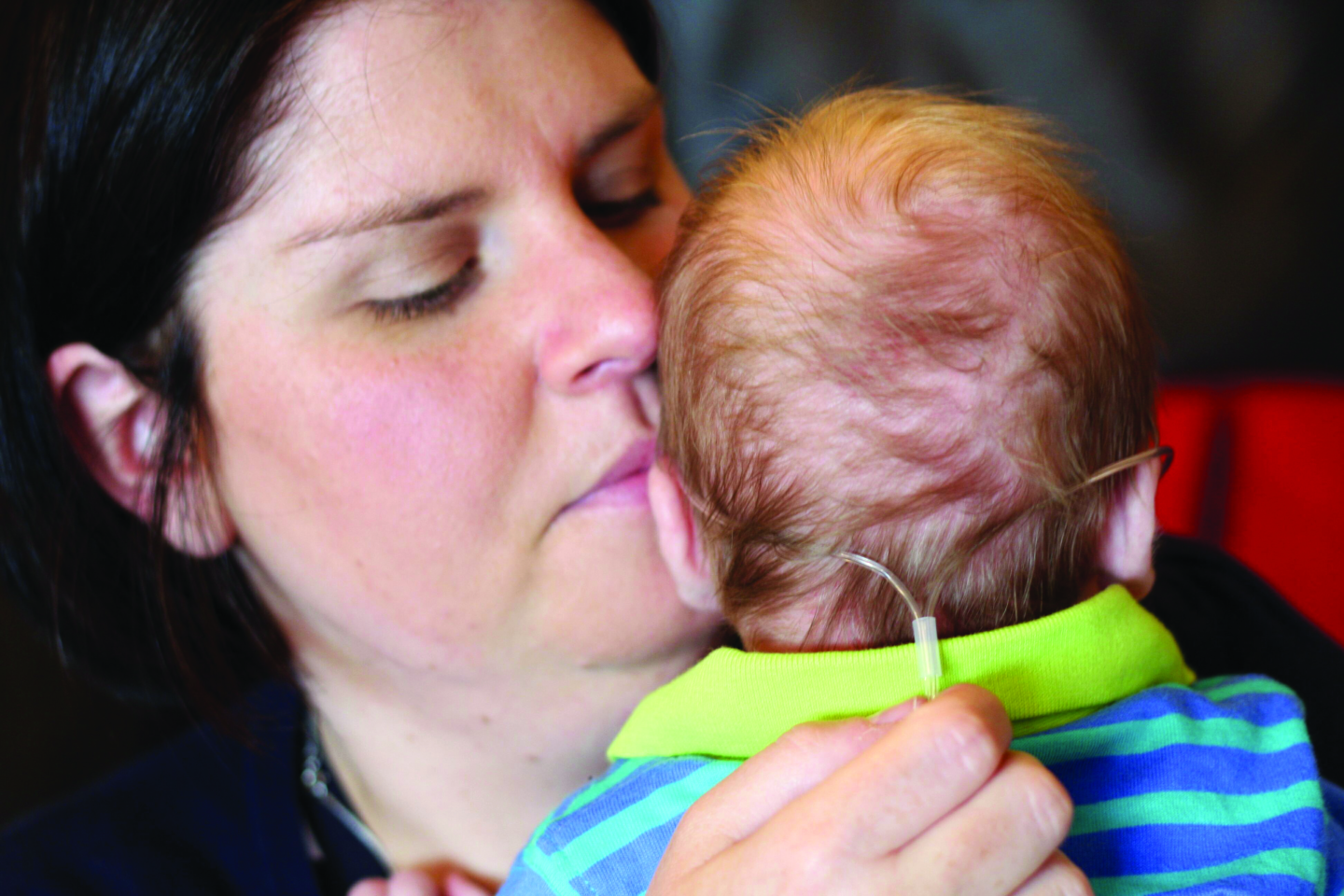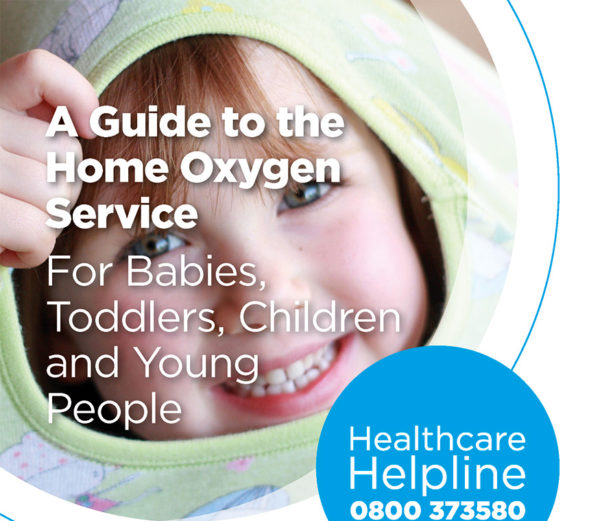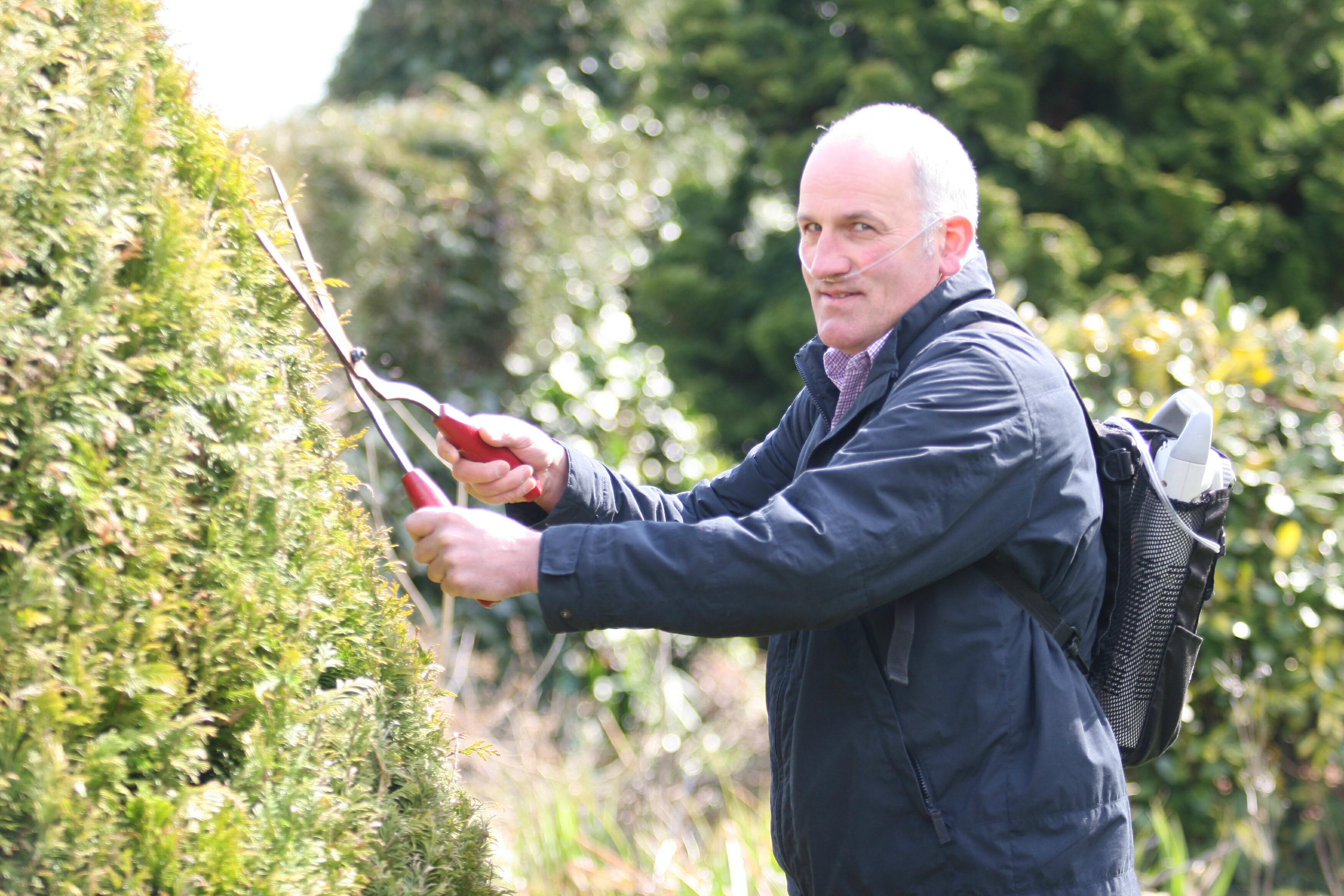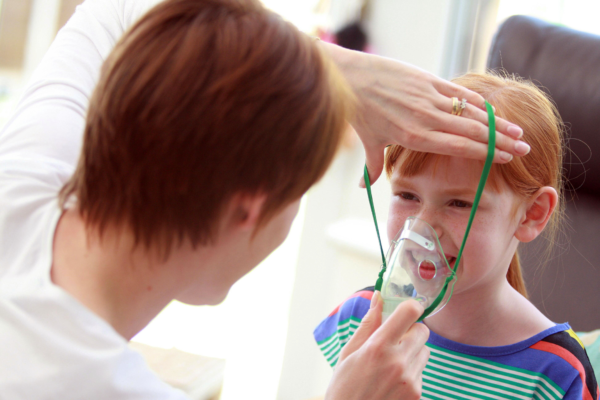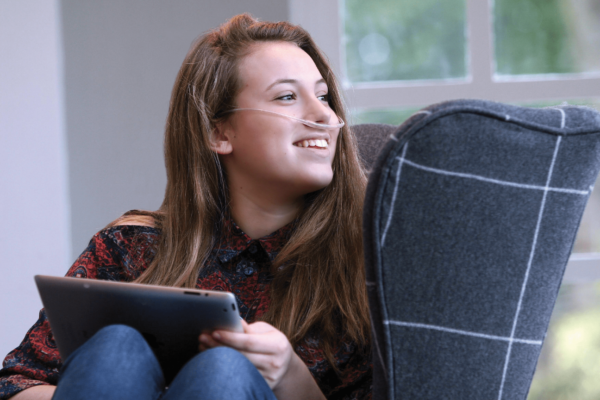Babies
We take the care of babies using oxygen very seriously. We appreciate that this can be a very anxious period for parents/carers, and we hope the following information will help.
If you have any more questions, please contact us using this form:
Or call our Healthcare Helpline on 0800 373 580.
You can find all this information and more in the Guide to the Home Oxygen Service booklet, that our Healthcare Technician will have left during the installation of oxygen.
Pushchairs, prams and buggies
If you have to take a home oxygen therapy supply out and about, please ensure that the cylinder is safely secured when using a buggy or a pram. If you’re able to and the tubing is long enough and safe to do so, you can wear the cylinder bag on your back while you push your baby. If this isn’t possible or practical, you can store the home oxygen therapy cylinder in the shopping compartment, ensuring that it is secure and won’t move around too much.
DO NOT balance the home oxygen therapy cylinder on top of the pushchair or place it in with your baby.
Playing
As a baby or toddler using home oxygen therapy, playing does not have to stop because of the oxygen supply. To ensure everyone’s safety, there are a few points to remember:
Make sure the tubing does not present a trip hazard for anyone, the patient or their playmate. If a cylinder is being used, make sure that it is secure and is not likely to fall or topple over. Make sure that the tubing cannot get caught or trapped anywhere, causing a block in the oxygen supply to the patient
Nursery and playgroup
Before your child attends nursery or playgroup, please discuss this with your Healthcare Professional, who will be able to offer valuable advice.
We like to help make these occasions as easy and as trouble-free as possible. We can provide oxygen at the nursery, so there is always a supply there, just like at home. We also have Clinical Advisers and fully-trained Healthcare Technicians, who are more than happy to visit the nursery and provide training on all aspects of the home oxygen therapy supply for any staff member. Please call our Healthcare Helpline on 0800 373 580 and ask for this to be arranged.
Swimming
Just because your child is on home oxygen therapy, doesn’t mean they can’t participate in activities such as swimming. You will need to take an extra length of long tubing and walk alongside the swimming pool next to your child with their oxygen cylinder. Have a chat with your Healthcare Technician or call the Healthcare Helpline on 0800 373 580 and ask for spare oxygen tubing and a cannula that you can use just as a ‘swimming set’.
Pets
Pets in the home are seen as one of the family, but extra care may need to be taken if a home is shared by both a family pet and a baby or toddler who uses home oxygen therapy. Some respiratory conditions could be made worse by pet hair and fibres, and extra care is needed to protect tubing and equipment from being pulled and chewed. Speak to your healthcare team for more advice.
Birthday candles
It is a great tradition to allow children to blow out candles on their birthday cake each year; however, if the birthday child uses home oxygen therapy, some extra safety points will need to be remembered. DO NOT allow any naked flames of any size or kind near an oxygen supply at any time.
This does not mean the birthday or celebration is ruined; you can get very realistic battery-operated candles that look just as special on top of the birthday cake. Please remember to take extra care when attending other children’s parties.
Baby massage
Baby massage has shown to be beneficial for a baby by helping them relax and be calm, so there is no reason why a baby who has to use home oxygen therapy should not be able to enjoy baby massage. Only use water-based creams and lotions on the skin at all times.
Nappy creams and soothing ointments
As with baby massage, there must be no creams or ointments that contain oils or petroleum-based products used on the skin of a baby or toddler that uses home oxygen therapy. Water-based creams and lotions are perfect and will not cause any harm to delicate skin. If you are unsure what to use on your baby, speak to your healthcare team or local pharmacist.
This also applies in the summer months when a high factor sun cream is required – check the list of ingredients on the bottle to ensure no oils or petroleum-based products are included.
Blocked nasal prongs
Sniffles and colds can cause blockage to the nasal prongs, which can restrict oxygen flow. Please make sure that any nasal prongs are cleaned regularly; if your baby or toddler has a cold, change them as often as you need to, especially if they’re getting blocked.
If you have run out of supplies, check the type that is being used. Call our Healthcare Helpline on 0800 373 580, and we will happily send out some more in the post.

